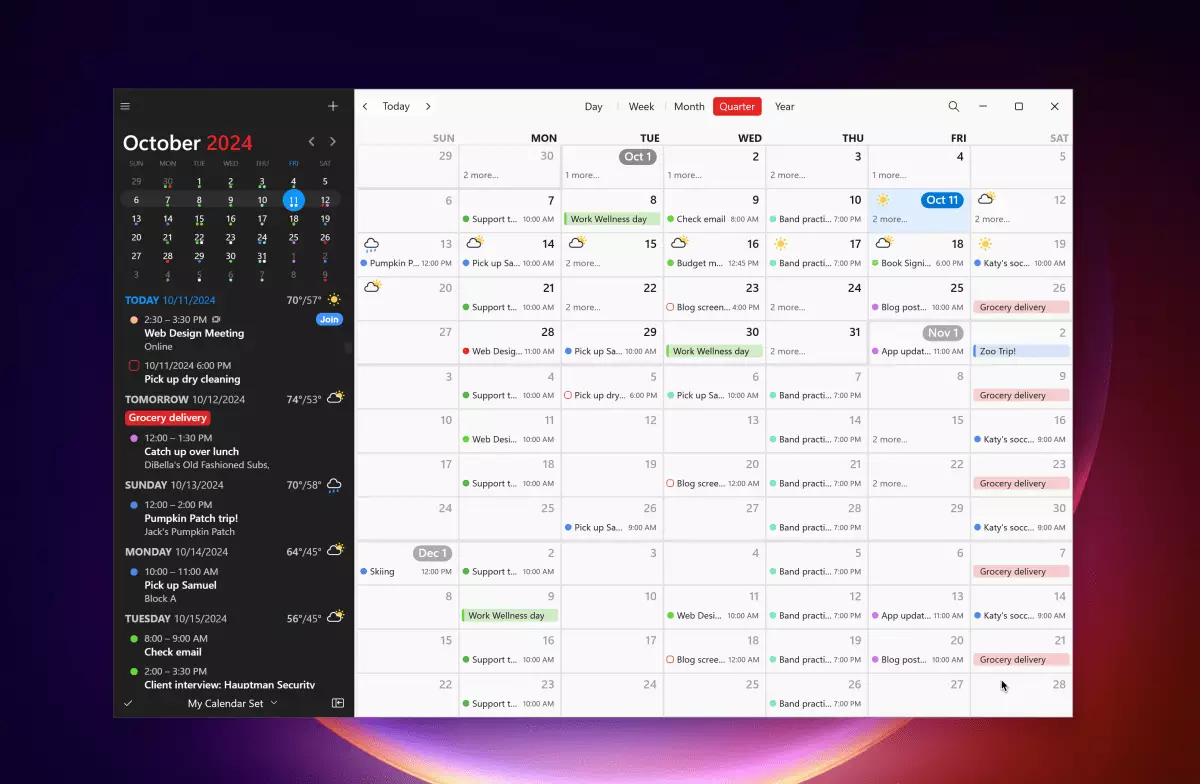The digital landscape is dotted with the remains of calendar applications that once captivated users only to fade into obscurity. New contenders emerge regularly, often boasting innovative features, but many find themselves veering off course or getting absorbed by larger entities. However, one application stands tall amid this turbulence: Fantastical. Celebrated for its seamless integration and user-friendly interface, Fantastical has successfully infiltrated the ecosystem of Apple devices since its inception in 2011, and now the app is beckoning Windows users into its fold.
Launched as a powerful calendar app exclusively for Mac, Fantastical has undergone significant evolution over the past 13 years, courtesy of its creators, Flexibits. Unlike many alternatives that often reassess their directions or niche focus, Fantastical has consistently rolled out updates and enhancements that resonate with its user base. With each iteration, they have expanded the app’s functionality, integrating it into various Apple ecosystems including iPhone, Apple Watch, and now even the Apple Vision Pro.
Flexibits recently announced a pivotal release: Fantastical is now available on Windows. The decision marks a transformative step aimed at reaching a broader audience, tapping into the expansive Windows user market. Michael Simmons, co-founder of Flexibits, emphasized this strategic pivot. He explained that embracing Windows is not just about adding compatibility; it symbolizes an acknowledgment of a vast number of potential users who have historically lacked access to such a robust productivity tool.
The arrival of Fantastical on Windows can be seen as a convergence of design, functionality, and user demand. Compatible with a range of calendars including Google Workspace, Microsoft 365, and iCloud, Fantastical now allows users to manage both personal and professional commitments within a single, coherent interface. The adaptability of this application is commendable, as it marries aesthetics with practicality.
One of the standout features of Fantastical is its ability to employ natural language input, allowing users to effortlessly create events by simply typing out their plans. This intuitive functionality aligns well with a fast-paced digital lifestyle, echoing the increasing need for time management tools that respect efficiency without sacrificing user experience. Fantastical’s capability to parse natural requests and convert them into concrete events dramatically reduces friction in scheduling tasks.
Moreover, the implementation of features like calendar sets—enabling users to customize their views and prioritize which calendars they want to display—is another testament to Fantastical’s commitment to enhancing user productivity. The innovative “DayTicker” view, known for providing an infinite scroll of upcoming events, further exemplifies how the application challenges traditional calendar interfaces.
The synchronization across platforms positions Fantastical acutely in a time where users often multi-task between different devices. Whether someone utilizes a Mac at home and a Windows machine at work or vice versa, they can now seamlessly transition between the two while maintaining a consistent workflow. This flexibility is essential for today’s hybrid work environment, allowing users to stay connected to their schedules without any interruptions or learning curves when switching devices.
Importantly, Fantastical’s cross-platform updates mean that all users, regardless of their operating system, will enjoy synchronized functionalities. This feature parity is essential for maintaining a cohesive user experience, especially for those who rely on body of content that spans multiple devices.
Fantastical stands as a freemium model, where users can access basic features without cost but will need a premium subscription to unlock the full suite of functionalities. The current pricing structure appears to maintain stability with the introduction of the Windows application, allowing Flexibits to focus on bolstering user engagement rather than inflating costs.
However, despite Fantastical’s success, Simmons has been forthright regarding future expansions, particularly towards Android. There’s a palpable reluctance to pursue this avenue, shaped by past experiences that suggest the Android market may not align with Fantastical’s niche offerings. This guarded approach is indicative of the challenges independent developers face when navigating larger platform ecosystems.
Fantastical’s leap to Windows is more than just an expansion; it represents a commitment to inclusivity in productivity applications. The narrative of Flexibits around Fantastical isn’t simply one of technological advancement, but rather a deeper understanding of user needs across multiple platforms. As they continue to evolve and adapt, Fantastical is poised to remain an indispensable tool for millions, bridging the gap between various operating systems and enriching how we schedule, plan, and organize our daily lives.

